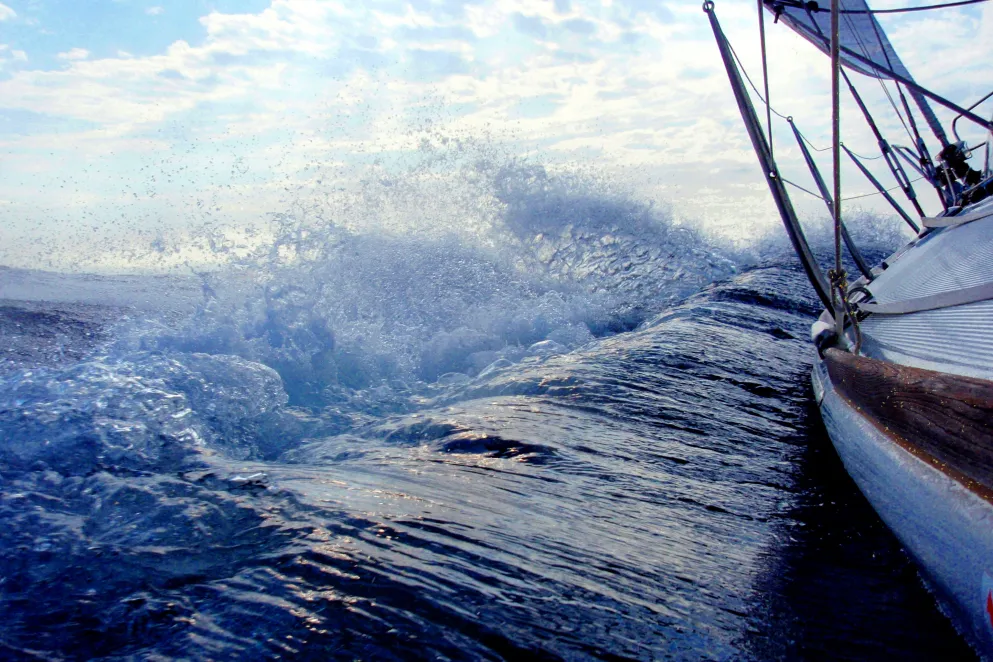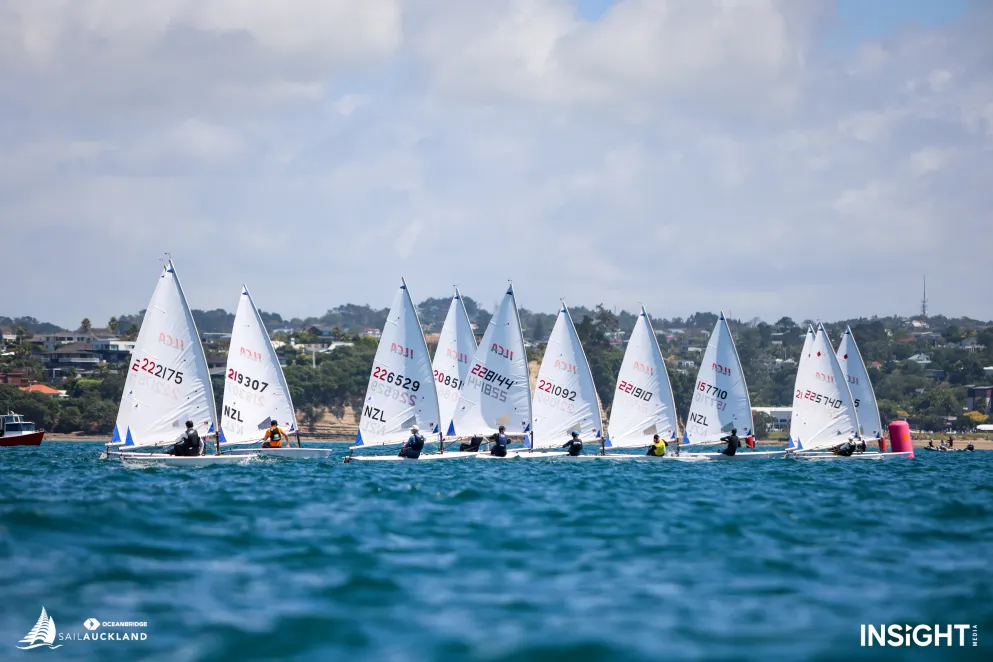Some things to consider to be a leader at sea
When you look back at all the stories you tell at the yacht club bar, generally you are never recalling the time you had a perfect 10-15 knots of breeze abaft the beam and you had a perfect day sailing, writes Viki Moore from Island Cruising New Zealand.
No, you'll be telling the story about the time that things went wrong, stuff broke, the weather was terrible, everyone was seasick and how, despite everything going wrong, you (hopefully) came out the other side in one piece.
Not everyone copes well in hair-raising situations, however, and, of course, we aim to avoid putting ourselves in any danger in the first place. But if it's going to happen, it will happen 'out there'.
Being a good leader and keeping a clear head can really help reassure everyone when things don’t quite go to plan.
As the skipper, you're responsible for the vessel and all the crew on board. It's a big undertaking and responsibility.
You're the one in charge and, as the leader, the crew must have confidence in your knowledge, guidance and leadership. Leadership is an art, a skill, a discipline, and a mindset, all of which can be learned and improved with practice.
As crew you can be a good leader, too, by following instructions, keeping calm, taking care of one another, being safe and supporting the skipper to be a good leader by sharing your knowledge and skills to help them make a decision and following instructions.
If you’ve ever experienced being under the management of someone who lacked some critical leadership skills, then you know that being in an authoritative role doesn’t necessarily make someone a good leader. Have you ever been on board a boat with a skipper who constantly loses their cool, shouts at the crew and blames others for their mistakes?
Owning a boat doesn't automatically make you a good skipper or leader. So, what does?
There is no one-size-fits-all leadership style, and you don't need to change your personality to become a good leader. However, there are some key qualities that every good leader should have.
Be it racing around the cans or cruising across the ocean, you can break down what makes a good leader by a set of qualities. Then anyone can start to become more mindful of areas where you display good leadership and other areas where there is more room for growth.
Being Prepared
Be confident in your own skills and abilities. If you aren't confident in things like navigating, passage planning, reading the weather or trimming the sails, take a course, ask someone to help you, do some more reading or do the online Island Cruising NZ cruising preparation workshops.
Know your boat like the back of your hand. Learn how to change an impeller, know where everything is stowed, how to quickly put in a reef, how to unclog a blocked bilge pump. Be aware of the weather and know what conditions you are likely to expect throughout your voyage.
Never stop learning and upskilling. Share your knowledge and skills with others. While you don't need to be an expert in everything, it is handy to balance your skills with those of your crew. You can then take their advice before making a decision.
Being Safe
People need to feel safe before you can earn their trust. Talk about safety and expectations, make sure your boat has all the necessary safety gear on board, look out for one another, train the crew how to safely undertake the important tasks on board the boat and highlight the hazards - things like the boom and line handling. Don't expect everyone to know how everything works if you haven't trained them.
Integrity & Leading by Example
Set the watch-keeping rules or standing orders, and ensure you all follow them. Lead by example. If the rule is not to leave the cockpit at night without letting someone know, then ensure you all follow that rule. Respect and reinforce the safety protocols and code of conduct on board the boat. Don't ask people to do something that you'd not consider doing yourself.
Think Ahead
Be pro-active instead of reactive. Anticipate what challenges, risks and consequences might lay ahead, be it bad weather or investigating that unusual noise. There are many factors like waves and weather that are out of your control at sea but have a plan for what is going to happen next and how you'll tackle any issues.
As crew, if you're coming in to a marina, get things like lines, boat hooks and fenders ready to go, put the kettle on for a fellow crew member on night watch, keep people warm, rested and well fed, anticipate what will happen next and be ready to act.
Keep Cool & Communicate
Good leaders are good communicators. They don't shout or blame. People are not mind-readers, so talk about the situation, discuss the outcomes you aim to achieve, ask for feedback and comments, formulate a plan, ensure everyone understands and act on it.
Communicating is not all about talking, it is mostly about listening. Be respectful and understanding of any concerns, and give clear and decisive instructions.
Collaborate
Remember you are part of a team and it is essential that you all work together. Utilise the unique skills of others and promote a strong spirit of teamwork.
Inspire Others
Create a positive atmosphere, a sense of community and teamwork among the crew. Be courteous, loyal and helpful to others.
Inspirational leaders truly care about other people, and that is why people care about what they say. Good leaders are not negative or lazy. Be someone that others will respect.
Have a positive can-do attitude
When faced with adversity, if you believe you are going to fail then you probably will. Stay positive, keep trying. Surround yourself with like-minded positive people. Believe in yourself and the skills that you all have. Never give up.
Take Your Time, and Take Control
It is easy to make poor decisions when you are under pressure. Stop, take a moment to assess the situation. Is anyone injured? Is the boat OK? Are you in immediate danger? Think before you act, ensure your own safety first, discuss the options, then formulate a plan.
Empower & Delegate
Give others a role and responsibility. Listen to their ideas and suggestions. Place confidence in the crew and give them the freedom to do their jobs well.
The skipper needs to rest and needs to have confidence that the boat is in safe hands when they are off-watch. If you are that person, step up, be the leader, maintain a proper lookout and take care of the crew.
Adapt & Pivot
Situations are dynamic, especially on the ocean. Constantly assess and reassess, play out the different scenarios and be prepared to change the plan.
Learn from Your Success & Failures
Things won't always go to plan. Use both your successes and failures to get better at what you do and take every learning opportunity to help you change your style to improve in the future.
Have a Sense of Humour
It's said it's not an adventure unless you wish you were somewhere else at some point in the journey! Remember that challenging situations are the best stories to have in the club bar afterwards.
You can participate in this and many more online cruising preparation workshops by joining Island Cruising NZ for just $75 per year.
The workshops are designed to help you prepare your vessel, crew and yourself for long coastal and offshore voyages. www.islandcruising.nz

















